This page contains affiliate links. This means that we may get a small commission for recommending products, if you choose to click on something and buy it. This does not cost you anything, but we wanted to be honest and let you know!
(Last Updated On: )Loading your boat into your trailer with bunk carpet or padding is almost unthinkable these days.
Bunk carpet might be a lifesaver when you’re heading to the lake, but it can be a big nuisance if you have to replace it after only a few trips to the water.
Luckily, the industry has improved. It’s not hard to find high quality, reliable bunk padding on the market.
The only tricky part is distinguishing the best boat trailer bunk carpet from the carpets that fall short. Here’s what you need to know to get your trailer bunk in ship shape:
| Bunk Carpet | Preview | Dimensions |
| CE Smith | 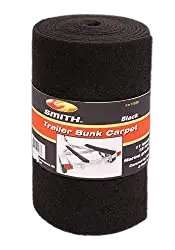 | 11″/12′ |
| Attwood 11246-1 | 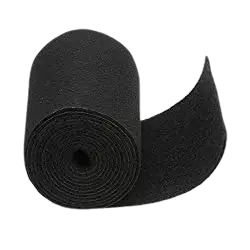 | 12″/12′ |
| SeaSense | 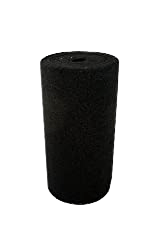 | 12″/12′ |
| Tie Down Engineering 86137 | 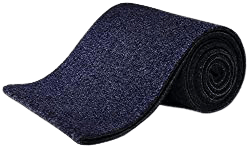 | 11″/12′ |
| Carpet by the Foote | 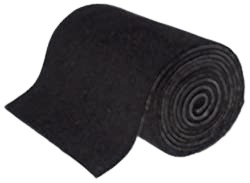 | 18″/18′ |
Table of Contents
Product Reviews
1. CE Smith Trailer Roll Carpet

The CE Smith boat trailer carpet roll is made of some really strong stuff. You’ll notice how heavy it is when you go to apply it, which is perfect when you need some bunk carpet you can count on to last.
Despite how thick it is, it’s smooth, too; so you can roll your boat or ski-doo right on your trailer. Because it’s so thick, you need to pay attention to the staples you use to secure it to your boards.
Measure and get the correct size, and your carpet will last even longer.
Pros:
- Very heavy duty
- High quality and long-lasting
- Easy to lay and cut to size if needed
Cons:
- The gray color is much darker than other brands
2. Attwood 11246-1 Bunk Padding

Trailer bunk padding is essential to keeping your boat in good shape and making it easy to transport.
This Attwood bunk padding has just the right amount of smoothness and sticky friction. It’s easy to glide your water gear on to it, but it’ll also grip them enough to keep your boat in place.
It dries out quickly, which also helps preserve the hull of your boat, as well as your boat trailer itself.
The wrap is designed to leave some space uncovered; leaving some uncovered areas helps dry the bunk.
Pros:
- The backing makes application easier
- Good friction to hold boats in place
- Dries faster than other bun bunk carpets
Cons:
- Will be difficult to fully wrap planks
3. SeaSense Trailer/Boat Bunk Padding

The SeaSense trailer bunk padding is a great value. It’s a steal, compared to more expensive brands in big-name stores. Not only that, it’s just a better product.
It’s thicker than the same types of padding that cost double, and it feels better too. If you’re sick of replacing expensive bunk carpet several times a year, you’ll appreciate how well the SeaSense padding holds, and how it doesn’t thin out.
It’s also much easier to install than the majority of other bunk carpet brands so that you can get back on the water faster.
Pros:
- Better value and quality than more expensive brands
- Quick, hassle-free installation
- Easy to staple in place
Cons:
- Adhesive can only be used at lower temperatures
4. Tie Down Engineering 86137 Bunk Board Carpet

The Tie-Down Engineering boat trailer carpet roll is surprisingly easy to work with. It’s thick, but unlike other unwieldy bunk padding types, it’s also pretty easy to cut if you need to.
This bunk carpet also has another advantage over other marine carpets. While marine carpets and bunk padding are designed to withstand water damage, they can still mildew and degrade over time.
This bunk carpet is not only mildew resistant, but it also won’t rot either, even after seasons of regular use.
Pros:
- Won’t mildew or rot over time
- Fully wraps around 2×4 bunks
- Easy to work with
Cons:
- Has a more ribbed texture
5. Carpet by the FooteBoat Trailer Bunk Carpet

This is a roll-off trailer bunk carpet you can count on. And if you’re on the fence, the company puts plenty of backing on the quality of its products. It’s durable and rot-resistant.
As a bonus, it sheds all the excess water much quicker than other bunk carpets. That’s important since it helps preserve the lifetime of the carpet.
It comes in a sleek jet black color as well as a beautiful range of other colors. While you might usually avoid such a stark color for fear, it’ll fade, this one won’t. It’s UV resistant and has a three-year no-fade warranty.
Pros:
- Won’t rot over time
- Comes with a three year, no fade warranty
- Sheds water quickly
Cons:
- Roll is slightly shorter
Maintaining a Good Boat Trailer
Take Care of Your Tires
It’s a good rule of thumb to follow, even if it seems tedious. Always check your boat trailer tires before you head out on the water.
If you haven’t taken your trailer out in a while, make sure you check your tire pressure and inflate them if needed. That means the spare tire too!
Examine your tires for wear. Look for signs that they’re getting worn, such as low treads, cracking or bulging. If you see these on your tires, replace them before using your trailer.
You can also help prevent early damage, especially if your tires are often in the hot sun while you’re boating. Spray your tires with a UV protection spray every few months to keep them in great shape.
Maintain Your Wheels
You can come into some very hazardous situations if you’re not regularly maintaining your wheels.
Always check your wheel nuts; you need to check they’re all present. It’s not a frequent problem, but one or two might get loose and might go missing. Then, make sure all your wheel nuts are secured and well tightened.
If a wheel nut comes loose while you’re driving, you could have a very messy and dangerous situation.
You should always check your wheel bearings, especially after your trailer spends some time in storage.
Trailer wheels should be able to move easily and with minimal (if any) sound. Check to ensure your wheels spin straight, and don’t give or wobble when pushed from the side.
You should always check and replace the grease on your wheel bearings. It’s also worth remembering that special marine grease is the only type you should be using.
Each time you take your trailer out, top up the grease. Be careful not to add too much, since that can actually counteract the seal.
Keep Your Brakes in Shape
Brakes vary across different trailer types, so make sure you’re familiar with any specific needs that yours may have.
After taking your trailer out of storage, you need to replace your brake fluid. You’ll need to so occasionally, according to the manufacturer’s instructions.
You also need to check the brake cables and adjust them appropriately.
Check for wear or corrosion and replace your brake pads when you notice they’re wearing down.
Keeping an extra set of brake pads doesn’t require a significant investment. It also saves a lot of time when your brake pads do need a change.
Lubricate all parts of your brake system. Don’t forget to treat the hitch actuator and brake lock tab while you’re doing this.
Keep it Clean
If you want your trailer to last, it’s paramount that you give it a good cleaning after you take it out.
Saltwater can be a death knell for a good trailer if you don’t spray it down, but freshwater from lakes or rivers can do damage in time too.
If you have a steel trailer, get it sprayed off as soon as you can after taking it out of the water, since steel can take on rust quickly, especially with saltwater.
Pay special attention to parts at the end of your trailer, since they are submerged in the water.
Tight corners and areas around bolts often rust before other areas, so rinse them thoroughly, and inspect them frequently.
How to Replace Your Boat Trailer Bunk Carpet
Consider the Materials
If you have a harder wood like pine, your boat trailer bunk will hold up better over time.
This is especially so if it’s pressure-treated wood. It’s also easier to apply carpeting to the bunk, since wood can accept and hold staples and bolts better.
These are also the most common items used to attach trailer bunk padding. Stainless steel is the standard material for fasteners, and they should range between ½ to ⅔ of an inch in length.
Prepare Your Bunk Carpet
Once you’ve selected an appropriate, quality bunk carpet, check the roll’s specifications. While many bunk carpets can be cut to size, it’s better to get as close a match as possible.
Layout the bunk carpet and measure it, comparing it to the dimensions of the planks on your bunk. If there are any overlapping areas, trim the bunk padding as needed.
When you’re done measuring and trimming, the carpet should fit the boards exactly while still allowing a slight amount of space for butt seams.
Even as you reach the undersides of the boards, ensure that the carpet doesn’t overlap anywhere.
It’s important to allow room for butt seams since wood expands when it gets wet. Without the space for butt seams, the bunk carpet can get stretched and strained, leading to damage or thinning.
It’s also important when it comes to staples and bolts since the expanding wood can also place extra pressure on these parts.
Install the Bunk Carpet
After you double-check your measurements, you can start the process of actually applying your bunk carpet.
Many boaters use only staples or bolts to secure their bunk carpet, but just as many choose to use adhesive as well.
If you use adhesive, make sure you’re using a product suited to the conditions it’ll undergo (water, heat, pressure, movement, etc.).
Apply adhesive on days with mild weather, or in a cooled, controlled atmosphere to prevent adhesive leaking and pooling in the bunk carpet.
Make sure you have all your supplies at the ready. Once you get started, it’s best to
avoid pausing and keep a steady pace.
Place the carpet exactly how you want it fixed, and make sure it lays smoothly and evenly. Begin at one end, and apply staples at the edges of the plank.
Continue securing the carpet at even, regular intervals. Make sure to use extra fasteners where the carpet will undergo additional stress and pull, especially at the ends of the planks.
Repeat the process along each plank, keeping the same even spacing between fasteners.
Maintain and Replace Bunk Carpet
When you’re done on the water, your carpet needs to get all the excess water off of it.
Allow the bunk carpet to shed the water from the lake or ocean. It’ll do this naturally, but try to make sure the water is shed from the carpet.
This way, when you clean your trailer, you’ll have less mixing of clean and dirty water.
Once the water drips off, you’ll still need to hose down your trailer and the carpet covering your planks.
Give your while trailer a thorough rinse, and ensure there isn’t extra plant matter or debris clinging to the carpet.
Allow the trailer and bunk carpet to fully dry before storing it. This prolongs the lifetime of your trailer bunk padding and helps keep issues like mildew and rot at bay.
You need to replace the bunk carpet regularly. But it won’t be that often if you get a high quality, durable boat trailer carpet roll.
If you applied the carpet correctly and maintained it well, you should aim to replace the carpet every 3 to 5 years.
Of course, if you notice rips, thinning, or other signs of wear, you need to replace it even if you haven’t reached three years.
Conclusion
Bunk carpet is an essential part of your boat trailer. It does more than making loading and unloading your boat more comfortable.
It also makes the equipment, and the whole process safer. Make sure you practice due diligence, and your bunk padding could last for years to come.
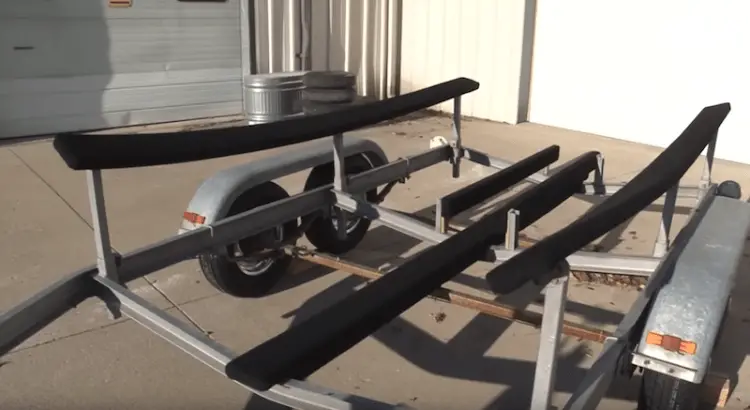
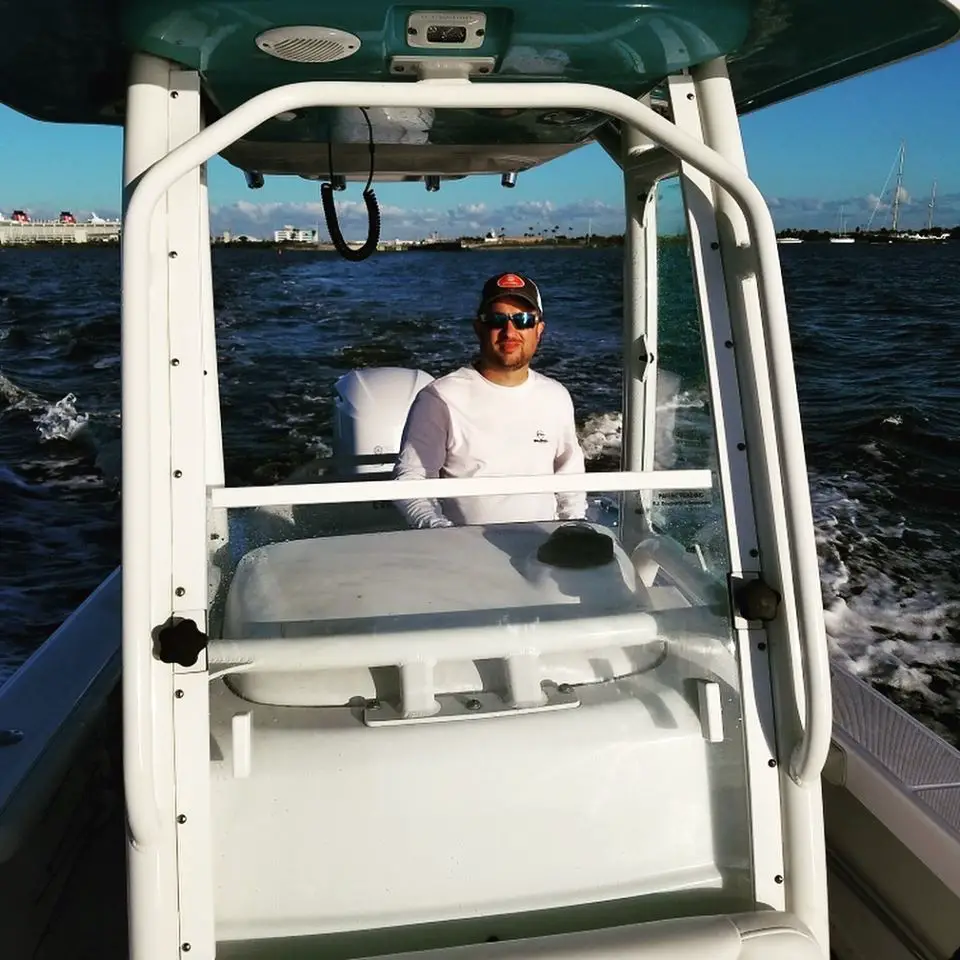


CE Smith Trailer Roll Carpet. I think It’s excellent for 2×6 boards for a boat trailer. I bought three of these to cover the complete boards I needed. I did have to cut about 4 inches off the width to fit the 2×6’s but the material is solid and cut with scissors easily to fit what I needed. A good stable gun makes a world of difference in the ease of placing these on the boards.